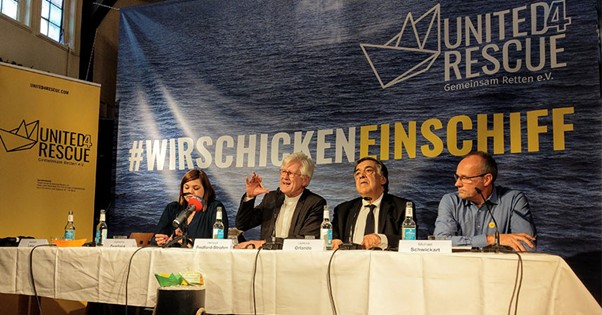Dictionary definitions are seldom adequate. For example, my dictionary says the word ‘public’ means “of or concerning the people as a whole.”
That implies ‘the people’ can be represented meaningfully. However, it’s complicated, because the public contains a wide variety of people and opinions.
Take as an example boat people, refugees, drowning in attempts to flee countries where their lives are nothing but misery. They pay money to persons (traffickers) who gather many persons, put them on a boat, and send them out to sea, to land on a distant shore.
The boat doesn’t make it to shore. People starve or drown at sea. Passing boats may stop, take them on board and rescue them from certain death. Maritime law says these boats must take them to the nearest port. But in some such ports the victims may be treated very severely. So, the rescuers break the law and take them to other ports, in other nations.
Some parts of the public say the rescuers are fulfilling the promise made by the traffickers to their clients (refugees). Other parts of the public say the rescuers are doing acts of mercy, saving fellow human beings.
What should churches do? There are lots of churches in Germany. About a quarter of them come under the banner ‘evangelical’ – which, in Germany, signifies churches who believe in the free offer of God’s mercy, not “the agenda of Donald Trump.”
The evangelical churches decided to raise money and, together with others, acquire a rescue ship and run a rescue mission. They operate with the hashtag #wirschickeneinschiff (#wesendtheship). A bishop speaks for them – and so the media write about the scandal of death on the high seas. The constant supply of bodies keeps the moral scandal on the radar.
Torsten Meireis, Professor of Systematic Theology in Humboldt University in Berlin, uses the above story to introduce his lecture “The ‘public’ in Public Theology,” in the collection of resources on public theology curated and made available on the website of the Lutheran World Federation.
His 30-minute, 5-part lecture helps viewers use that moral scandal to think about how decisions are made about issues of life on our planet.
First, it’s not a first world problem. Rather, it’s about routine, normative decision making about national matters. It’s about whether religious groups can or should participate. It’s about church and state. It’s about national interests and global injustice.
Second, it helps us think about dimensions of the public. The issue has been widely reported and analysed at various levels. Review of the discourse shows the questions asked: What is just? What is merciful? Does it concern the church? Who gets to decide? Who takes notice? Who is interested? Who understands? Who is concerned? What resources, training and access are needed to participate effectively in the discourse?
Third, ‘the public’ is not homogenous. ‘The public’ is a fragmented place, with many opinions. It displays asymmetry of power. For example, a discussion in a coffeeshop in Indonesia carries way less weight than a debate in a national Parliament. This is not only because of training, experience, and access to information, but also because of laws which may prohibit discussion of ‘sensitive’ subjects. The ability to articulate and propagate ideas often trumps everything else. Multinational Corporations and governments can hire web designers to help persuade people. They can also hire doorkeepers to keep the marginalized from entering spaces where they can voice their concerns. ‘The public’ for long did not include landless persons, women, and non-Europeans in much of the North, and still doesn’t in much of the South.
Fourth, we must consider how we conduct dialogue. Due to globalization and information technology, ‘the public’ is now much bigger and deeper. It’s packed with many religions and world views. Dialogue about the love of God and the meaning of a life devoted to serving our neighbours must be treated as unbounded, not just regional.
Fifth, there are at least three challenges for Christians.
One, since we believe in the dignity of all mankind, we should work to enable universal access and participation in decision-making.
Two, because we believe in the stain of sin, we should be self-critical regarding our own quest for power. The aphorisms ‘power is never innocent’ and ‘debaters are not angels’ hold much truth.
Three, we must be alert to the warning of Karl Barth: avoid becoming ‘church in excess’ (acting as if we are God) and avoid becoming ‘church in defeat’ (acting as if we know not God).
Jesus taught and performed in public. He commanded us to go forth and preach (e.g. Matthew 28). The apostles preached in public (e.g. Acts 2). If we are to be faithful, we too must teach and preach in public.
To learn more about Rama, click here.



Pingback: Black Liberation Theology vs Political Theology - Bangsar Lutheran Church